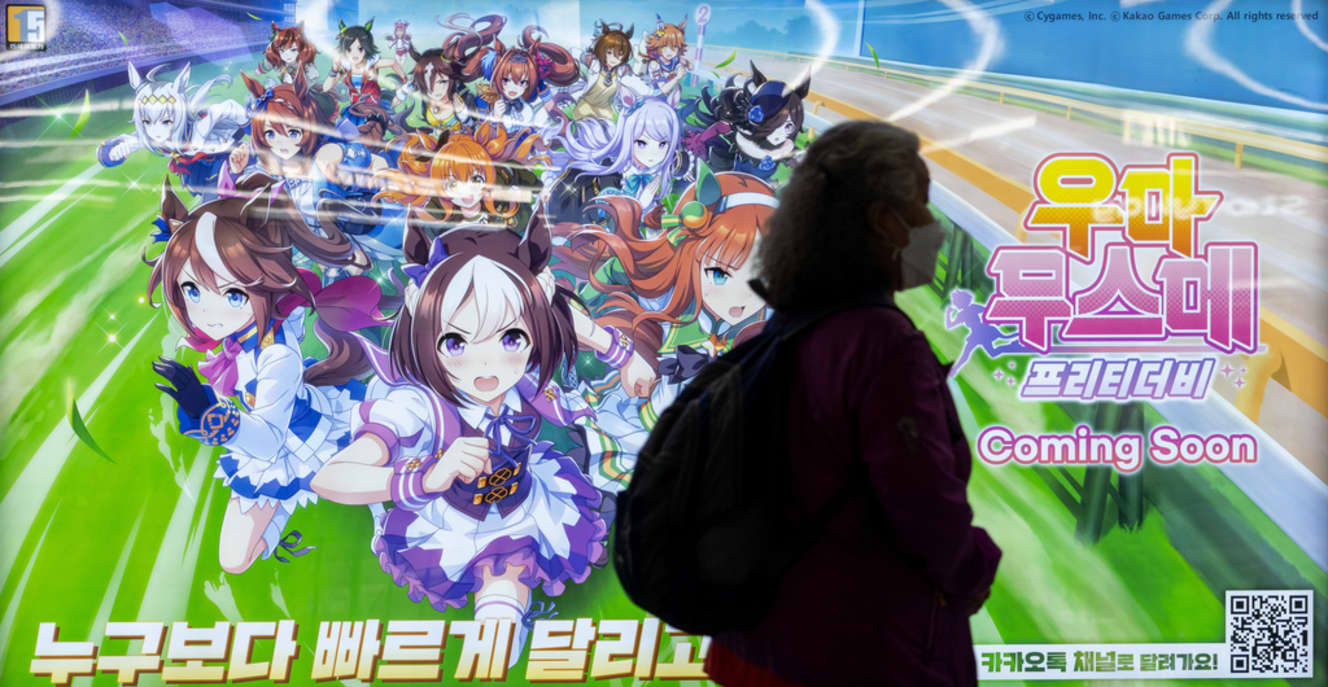The Korean version of Uma Musume is expected to be very popular in Korea. Some reports say that the number of pre-registered users exceeded 1 million in one week (photo: Kyodo News).Japan’s national soccer team has been selected to participate in the FIFA World Cup 2022 Qatar from November 21-December 18, the first tournament to be held in the Middle East. The stamina of Japanese TV stations could not keep up with the skyrocketing broadcasting rights fees, and free live broadcasts of all 64 matches were considered hopeless. The situation was saved by the participation of the Internet TV station ABEMA. ABEMA agreed with the Federation Internationale de Football Association (FIFA) to distribute official Internet programs from various angles (official Internet broadcaster) and contributed greatly to the realization of free live coverage of the Qatar games. Susumu Fujita (48), a representative of AbemaTV Inc. and general producer of ABEMA, posted on his Twitter account, “This will be the biggest investment ever for Abema,” and behind the huge purchase was the existence of that mega-hit game last year. He added, “I can’t get my head around Abema for the World Cup broadcast rights this time around. Frankly, I take my hat off to them!” A veteran terrestrial TV station official dared to express his gratitude to Internet TV, which is now in its sixth year of operation. Japanese TV stations were challenged by the skyrocketing cost of broadcasting rights for the free domestic broadcast of the World Cup tournament in Qatar, which will start this November. All negotiations had reached an impasse, and free live broadcasts had been hopeless. But with the participation of ABEMA, free live broadcasts of all 64 matches of the Qatar tournament have become possible. The broadcasting rights fee offered to Japan for the 1998 tournament in France, in which the Japanese national team qualified for the World Cup for the first time, was 550 million yen. In the 2002 Japan-Korea tournament, however, the fee jumped all the way up to 18.5 billion yen. “Pay-TV broadcasters, which have become the mainstream in European soccer, began to raise their hands to purchase the World Cup broadcasting rights, and the price went into a bubble,” said a veteran broadcaster. FIFA offered to raise the broadcasting rights fee for Japan by billions of yen for subsequent World Cups. On the Japanese side, NHK and commercial broadcasters formed an organization called the Japan Consortium (JC) to compete with each other, and in previous World Cups, each broadcaster has collected broadcasting rights fees. The Japanese side has allocated the broadcast rights to Japan’s games and jointly produced programs. The Japanese TV industry is no longer in a situation where it is left to correct the amount offered by FIFA for the World Cup in Qatar. In particular, commercial broadcasters have seen a sharp decline in sponsorship income over the past two years due to the Corona virus. Negotiations for broadcasting rights with terrestrial broadcasters were conducted in parallel with the scenes of the final Asian qualifying round for the World Cup that began last September. They were all unsuccessful, and with no prospect of collecting the estimated 35 billion yen, FIFA offered Japan the Qatar tournament. Free broadcasts of the World Cup in Japan have become virtually impossible. ABEMA, an Internet TV station that has been in operation for six years and is making great strides, was the obvious choice. Tomohisa Nomura, executive officer in charge of FIFA World Cup 2022 at ABEMA, looks back. The World Cup broadcast rights came to Mr. Susumu Fujita, the general producer of ABEMA. I don’t think there were several exchanges made in making the internal decision.
